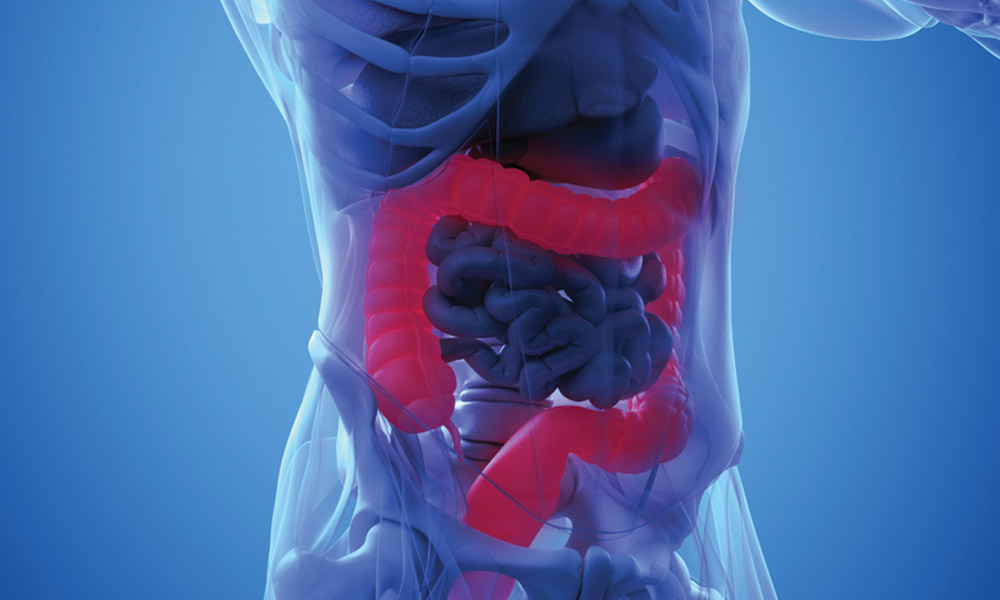Diverticulosis: Symptoms, Causes, Diagnosis, Treatment, Prevention

There are many common conditions and problems that can affect patients gastrointestinally. Some are no cause for concern, while others definitely require a medical checkup. Diverticulosis is a condition that is extremely common in the digestive tract and small intestine, but it’s not always cause for concern unless the condition worsens over time. Read on to learn more about diverticulosis, its differences from diverticulitis, and how you should handle diagnosis and treatment if you suspect there may be a problem.
What Is Diverticulosis?
Changes to the small and large intestine are common over time. In some patients, pockets can form in the walls of your digestive tract, particularly your large intestine, and for some, this is no problem at all. The pockets receive no further irritation and simply cause no more problems for the patient. The pockets themselves are known as diverticula; when multiple diverticula have formed the condition is called diverticulosis. However, these pockets do extend outward through the wall of the intestine making each of them a potential point of concern. Inflammation, infection, and even rupture can occur in the diverticula. When this begins to happen, there may be a broader level of concern.
There is some confusion between diverticulosis and diverticulitis. Diverticulitis has more to do with the progression of diverticulitis. Diverticulosis itself is not really dangerous; of course, doctors should keep an eye on the weak spots that may protrude from the large intestine if diverticulosis is severe, but in many cases, patients are not symptomatic.
However, if patients begin to experience pain or cramping, this may be indicative of diverticulitis, which does require medical intervention. Unfortunately, the top symptoms of diverticulitis also mimic other GI-related issues, such as bloating, nausea, and vomiting, so patients don’t always get themselves checked out right away. Of course, it could be a passing virus or another condition entirely. These conditions are also similar to peptic ulcers as well as irritable bowel syndrome, so if you keep experiencing discomfort and pain, the physician will likely order a battery of tests in order to rule out all causes.
What Causes Diverticulosis?
The causes of diverticulosis are not completely known by doctors and researchers. The problem with this is that there is no clear way to try to prevent the condition. The American College of Gastroenterology does have research that suggests what may cause diverticulosis, but nothing has been completely proven as of yet. The primary research suggests that high pressure in the colon can cause the condition as well as its symptoms; however, because this is a risk factor that is genetic, it is very tough to advise patients to make changes in order to avoid the problem.
Doctors also believe that diet does play some role in both conditions. As a general rule, as patients, we’re told to eat a diet that is high in fiber, with whole grains and dark leafy greens. And this holds true with diverticulosis as well. Drinking plenty of water and a diet rich in fiber helps to eliminate constipation. When the stool is able to move with ease through the colon it reduces pressure within the colon.
Who Is at Risk?
Because it is exceedingly tough to find out the reasons that diverticulosis occurs, it can also be tough to let patients know who is at risk because of the cause being undetermined. Diagnosis risk increases with age. It is thought that virtually everyone has some diverticula by the time they reach their 80s.
How Diverticulosis Is Diagnosed?
Diverticulosis is often diagnosed and discovered while physicians are looking for other issues, such as polyps (via colonoscopy). They may also be searching for another condition, using a different instrument or tool. Dependent on what type of tool they’re using, they may be able to see the entire diverticula and see if there is diverticulosis or diverticulitis.
If doctors are specifically looking for diverticulosis, there are several screening methods that they can use. One of the easiest and less invasive is X-ray. Others include a CT scan or a colonoscopy specifically scheduled to look for diverticulitis (although it can easily check for cancerous polyps as well).
What Is Diverticulosis Treatment?
The presence of mere diverticulosis isn’t much cause for concern, and there is no cure for the diverticula, once they have formed. Treating diverticulitis is done with antibiotics and, depending on the severity of the case, a liquid diet to allow the bowel to rest. It is important to seek medical help when you have prolonged pain in the lower left quadrant of the abdomen, especially when accompanied by fever. Left untreated, diverticulitis may result in a rupture allowing bowel contents to leak into the abdomen. This is a very serious complication that would require a visit to the ER and hospitalization. Once the infection is brought under control, doctors may also offer over-the-counter supplements such as psyllium, methylcellulose, or polycarbophil, to help bring some natural fiber back into the diet.
If you need more information about diverticulitis or diverticulosis or would like to be seen by a physician, request an appointment at Gastroenterology Consultants of Savannah, PC. With five Georgia locations and one South Carolina vacation, we’ve got you covered.